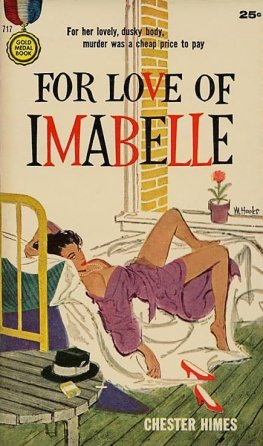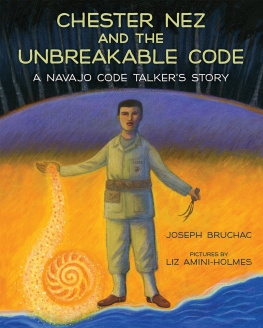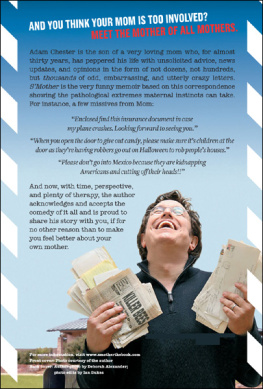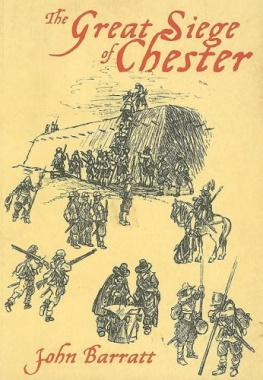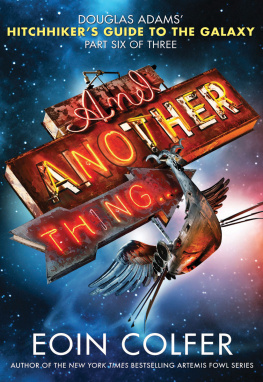Pafford - Chester A. Arthur The Accidental President
Here you can read online Pafford - Chester A. Arthur The Accidental President full text of the book (entire story) in english for free. Download pdf and epub, get meaning, cover and reviews about this ebook. publisher: Regnery History, genre: Politics. Description of the work, (preface) as well as reviews are available. Best literature library LitArk.com created for fans of good reading and offers a wide selection of genres:
Romance novel
Science fiction
Adventure
Detective
Science
History
Home and family
Prose
Art
Politics
Computer
Non-fiction
Religion
Business
Children
Humor
Choose a favorite category and find really read worthwhile books. Enjoy immersion in the world of imagination, feel the emotions of the characters or learn something new for yourself, make an fascinating discovery.

Chester A. Arthur The Accidental President: summary, description and annotation
We offer to read an annotation, description, summary or preface (depends on what the author of the book "Chester A. Arthur The Accidental President" wrote himself). If you haven't found the necessary information about the book — write in the comments, we will try to find it.
Pafford: author's other books
Who wrote Chester A. Arthur The Accidental President? Find out the surname, the name of the author of the book and a list of all author's works by series.
Chester A. Arthur The Accidental President — read online for free the complete book (whole text) full work
Below is the text of the book, divided by pages. System saving the place of the last page read, allows you to conveniently read the book "Chester A. Arthur The Accidental President" online for free, without having to search again every time where you left off. Put a bookmark, and you can go to the page where you finished reading at any time.
Font size:
Interval:
Bookmark:

Chester Alan Arthur (undated photograph)
Courtesy of the Library of Congress
Copyright 2019 by John M. Pafford
All rights reserved. No part of this publication may be reproduced or transmitted in any form or by any means electronic or mechanical, including photocopy, recording, or any information storage and retrieval system now known or to be invented, without permission in writing from the publisher, except by a reviewer who wishes to quote brief passages in connection with a review written for inclusion in a magazine, newspaper, website, or broadcast.
Regnery History is a trademark of Salem Communications Holding Corporation
Regnery is a registered trademark of Salem Communications Holding Corporation
Cover design by John Caruso
Cataloging-in-Publication data on file with the Library of Congress
ISBN 978-1-62157-595-5
ebook ISBN 978-1-62157-622-8
Published in the United States by
Regnery History
An imprint of Regnery Publishing
A Division of Salem Media Group
300 New Jersey Ave NW
Washington, DC 20001
www.RegneryHistory.com
Books are available in quantity for promotional or premium use. For information on discounts and terms, please visit our website: www.Regnery.com.
To all who unexpectedly rise to new heights above what most of their contemporaries believed possible
O nce the founding generation of American presidentsWashington, Adams, Jefferson, Madison, and Monroehad retired from active leadership, presidents did not usually dominate public life until the twentieth century. From 1824 through the end of the nineteenth century, there were the towering figures of Andrew Jackson and Abraham Lincoln, whose marks on our country remain. But the presidents between Jackson and Lincoln and between Lincoln and Theodore Roosevelt left little historical impression. The average citizen may recognize their names but knows little else about them.
Their obscurity is perhaps understandable because they governed in relatively undramatic timesespecially those three decades after the Civil War and before the emergence of the United States as a world power, though this was the time when the American economy boomed and the U.S. Armed Forces began ascending to the top tier.
Some of these forgotten presidentsWilliam Henry Harrison, Zachary Taylor, James Garfieldwere in office for too short a time to make their mark there. Franklin Pierce and James Buchanan failed to act decisively, leaving behind crises greater than they inherited. Andrew Johnson, an inept leader, had little support and was almost removed from office. Ulysses S. Grant, a great military figure, was an incompetent president. Rutherford B. Hayes was honest and competent, but his administration was hampered by his controverted election and his pledge to serve only one term. Benjamin Harrison was a decent mediocrity. Best of all the presidents between Lincoln and Theodore Roosevelt was the rather bland Grover Cleveland, a conservative who has not been as appreciated as he deserves. He should be remembered as honest and effective.
And then there is Chester Alan Arthur, the most unlikely of our chief executives. The other forgotten presidents at least had achieved national prominence in the government or the armed forces, but Arthur had held no elective office prior to his election as vice president in 1880. His most important position, collector of the New York customs house, was powerful and lucrative but was hardly equivalent to that of a United States senator or a state governor. From his youth he had impressed people with his intelligence, charm, and organizational and administrative abilities, but his career had been sidetracked. In 1880 he was regarded as, at best, a competent, upper-tier lieutenant in the New York political machine of Roscoe Conkling. Yet as president, Arthur rose to an unexpected level of principle and accomplishment. Making his record more impressive is that about one year after assuming the presidency, he was diagnosed with Brights disease, a debilitating kidney ailment for which there was no cure at that time.
Arthurs career is a cautionary tale of wandering after a promising start into professional paths that were lucrative, but not commensurate with the promise of his youth. Then he suddenly was given another chance when he became president after the assassination of Garfield.
S aturday, July 2, 1881, dawned more pleasant than the steamy, typical Washington, D.C., summer day it would become. James Garfield, who had been president for just under four months, planned to leave on the train at nine thirty in the morning from the Baltimore and Potomac station at Sixth and B Streets, N.W. (today the site of the National Gallery of Art), a short distance from the Executive Mansion, commonly called the White House. (Theodore Roosevelt would make that name official in 1901.)
Garfield looked forward to vacationing with his family and avoiding the unhealthy heat and humidity of midsummer Washington. They would travel north to New York City, sail up the Hudson River on the yacht of Cyrus Field, an entrepreneur known for promoting the transatlantic telegraph line, and spend the night at Fields Irvington mansion. The party then would cross into western Massachusetts for graduation ceremonies at Williams College, the presidents alma mater, where he hoped eventually to send his two older sons. Next they would continue to Augusta, Maine, for the weekend with Secretary of State James G. Blaine. After a brief return to Washington, Garfield and his family then would spend August at their comfortable home on 160 acres in Mentor, Ohio, not far from Cleveland. The president looked forward to getting his administration into higher gear after the summer vacation. But it was not meant to be.
At about nine oclock in the morning, Garfield left by carriage for the train station with Blaine but without security personnel. The Secret Service had been established a few years earlier after Abraham Lincolns assassination, but presidential security came after fighting counterfeiting in the agencys priorities. The passage of fifteen years since Lincolns deathconsidered a wartime aberrationhad brought complacency. But political assassinations were a worldwide danger. During the 1870s, presidents Jos Balta of Peru, Gabriel Garca Moreno of Ecuador, and Juan Bautista Gill of Paraguay were slain, as was Sultan Abdul Aziz of Turkey. A few days after Garfield took office in March 1881, Tsar Alexander II of Russia fell victim to an assassin. Attempts had been made in recent years on the lives of Queen Victoria of the United Kingdom, King Alfonso XII of Spain, Emperor Napoleon III of France, and King Victor Emmanuel II of Italy. Yet on this day in July 1881, Garfield entered the train station accompanied only by the secretary of state and his sonsHarry, who was seventeen years old, and James, who was two years younger.
Inside the station waited Charles Julius Guiteau, a deluded, frustrated office-seeker, a neer-do-well who dreamed of distinction but always fell short and blamed his failures on others. In recent weeks he had stalked Garfield, getting close to him during a service at the Vermont Avenue Christian Church and while the president and Blaine walked the short distance from the White House to the secretary of states house. Each time, Guiteau held back from striking. Now he was determined not to miss this opportunity to change history. He drew his weapon, a .44 caliber British Bulldog revolver, and as the two men passed him he fired two bullets at short range from behind. The first struck Garfield in the right arm. As he turned, Guiteau fired the second and fatal shot, hitting him in the back. As he tried to flee, Guiteau was grabbed by Robert Parker, a ticket agent, and Washington police officer Patrick Kearney.
Font size:
Interval:
Bookmark:
Similar books «Chester A. Arthur The Accidental President»
Look at similar books to Chester A. Arthur The Accidental President. We have selected literature similar in name and meaning in the hope of providing readers with more options to find new, interesting, not yet read works.
Discussion, reviews of the book Chester A. Arthur The Accidental President and just readers' own opinions. Leave your comments, write what you think about the work, its meaning or the main characters. Specify what exactly you liked and what you didn't like, and why you think so.

